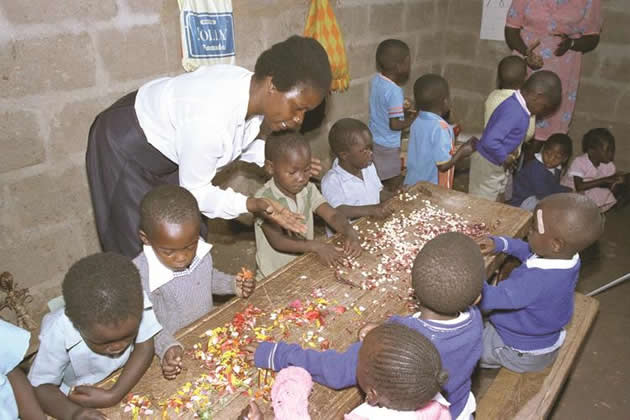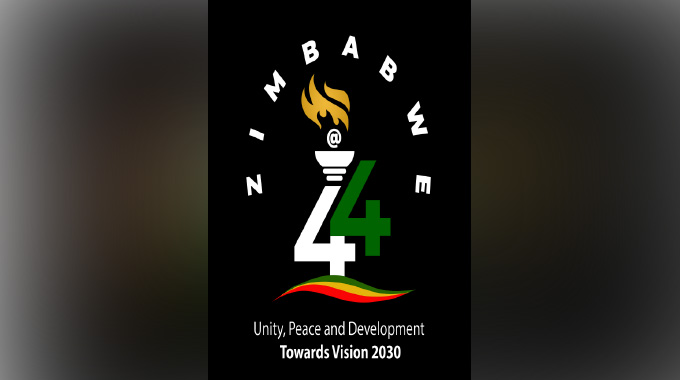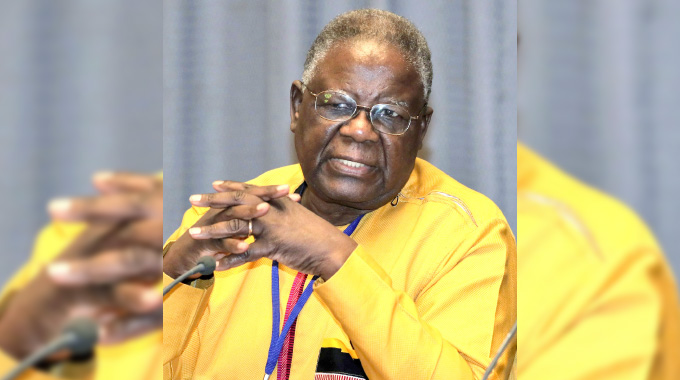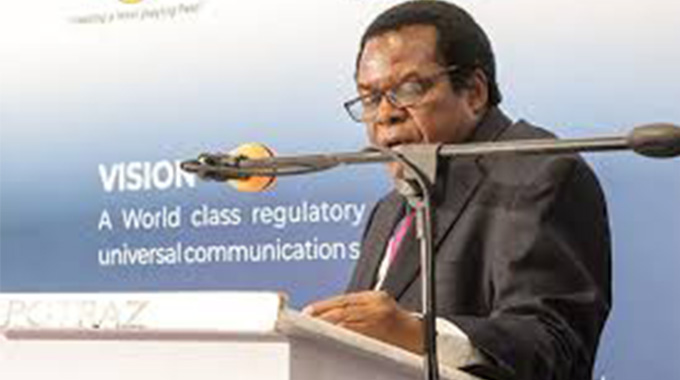‘There is nothing like Grade Zero’

 MANY people are used to the term Grade Zero and it is now the order of the day. Grade Zero according to what they say started in 2004 after the Nziramasanga Commission of 1999 which was set up to look into the education system in Zimbabwe. The government-appointed commission found out that the foundation of young children was affecting people up to the tertiary level hence, the introduction of Early Childhood Development Education. This is when the term Grade Zero started for pre-grade one classes attached to primary schools to curb the exorbitant fees charged by private pre-schools.
MANY people are used to the term Grade Zero and it is now the order of the day. Grade Zero according to what they say started in 2004 after the Nziramasanga Commission of 1999 which was set up to look into the education system in Zimbabwe. The government-appointed commission found out that the foundation of young children was affecting people up to the tertiary level hence, the introduction of Early Childhood Development Education. This is when the term Grade Zero started for pre-grade one classes attached to primary schools to curb the exorbitant fees charged by private pre-schools.
The term Grade Zero is meant to cover school children who are below Grade One; that is why some people looked for a figure which is below one.
However, there is nothing called Grade Zero. Zero means nothing and how can we say grade nothing yet something of great value is taking place?
Early Childhood Development (ECD) covers infancy, which is from birth to one year, and toddlerhood which is from one year to three years and then ECD A which is from four to five years and EDC B, five to six years which is usually referred to as grade zero. There is also ECD Grades One to Three.
In South Africa EDC B is called Grade R for reception and ECD A are called pre-grade R ECD that is from zero to eight years is meant to develop the child holistically, that is physically, intellectually, socially, emotionally and creativity through different educational activities and play. Hence, we cannot refer to it as grade zero or grade nothing.
There are now two grades before grade one that is ECD B and A to make nine years of primary school. ECD B and A and below do not read and write according to director’s circular 12 of 2005.
However, they read books with pictures, that is, they can understand what is going on in a picture and they would be acquiring comprehension skills necessary in grade zero and above. These children may scribble, draw, model, and colour, make patterns and this is their writing. Therefore, parents do not need to worry if their ECD A and B children are not writing their names, they are not doing nothing, but a lot of activities to develop them holistically preparing for later stages. In Early Childhood Development there is integrated learning whereby during music a child can learn mathematics concepts such as subtraction for example in a song “Ten green paw-paws.”
Children can also learn Maths concepts through stories such as “The Three Little Bears.”
However, parents concentrate on Grade Ones, Form Ones, Form Fours or children in higher grades. The child in ECD A or B is the last one to be considered when it comes to paying school fees or to be sending to school. ECD A and B are the foundation or the seed which needs to be nurtured until they germinate and nurturing needs to continue to have higher grades or to produce quality in future.
The government made and is still making efforts to train teachers to manage ECD classes. These teachers have five “O” level passes including English and Mathematics and get a Diploma though they are sometimes underrated by their counterparts, some are pursuing their first degrees and others are taking masters programmes in ECD. Therefore, it means there is something taking place in ECD. If a child goes straight from home to Grade One he or she starts learning about school environment that is other pupils, adults as teachers rather than learning the needed concepts. This is unlike the child who has been involved in ECD A and B. Therefore ECD A and ECD B bridge the gap between home and school.
ECD children can be taught anything provided the matter has been lowered to their level of development. For example, an ECD child can be taught the properties of water such as water flows through hands on activities or experiments. There is also what is called water play whereby children play with water and learn the properties of water such as water is colourless, water takes the shape of the container and a lot of things. It is a pity that some parents or other practitioners do not allow children to play with water. These young children can become scientists at their age.
Teaching these children needs tactics and skills which are equipped during the training and other skills are gained through experience with these children. People are amazed on how these children can be taught child abuse but it is an easy topic to deliver to these ECD children.
ECD A and B at primary schools can break intergenerational cycles of poverty in different families or the nation at large. If a child accesses early education he or she is likely to perform very well in higher grades and likely to get tertiary education and finally get employment or employ him or herself and have a better life.
Therefore, people out there need to applaud the government for the effort or the strides it had made so far and desist from using the term Grade Zero because there is a lot happening there.
- Liah Maswera is an ECD practitioner based in Gweru











Comments